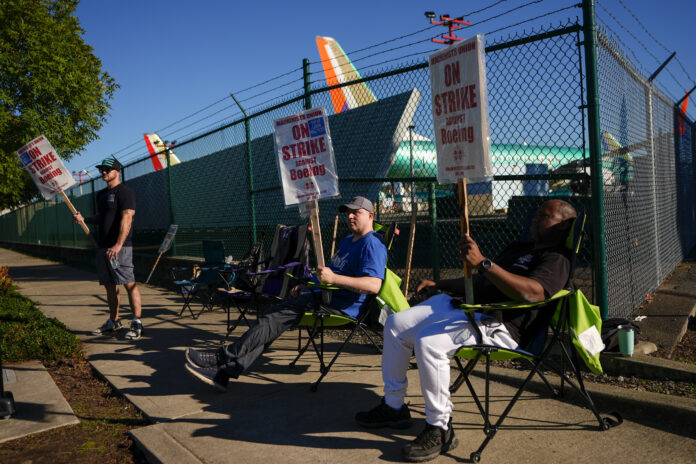America’s employers added only 12,000 jobs in October, a sharp decrease from September’s 223,000 new positions, according to the Labor Department’s latest report.
Economists attribute much of the slowdown to the impacts of strikes at companies like Boeing and hurricanes that disrupted business operations and left workers temporarily off payrolls. These events created a murky snapshot of the job market just days before a presidential election in which economic concerns are a key focus for voters.
Job Losses in Manufacturing and Temporary Work, Gains in Healthcare and Government
Reflecting the strike impacts, factories shed 46,000 positions in October, and temporary placement firms cut 49,000 jobs—a cautionary indicator, as companies typically hire temporary workers before committing to permanent employees. In contrast, the healthcare sector added 52,000 jobs, and state and local governments contributed an additional 39,000 roles.
The report also revised down job gains for August and September by 112,000, suggesting that the labor market had been cooling even before the October disruptions. Comerica Bank’s Chief Economist Bill Adams noted that these “one-off shocks” make it difficult to determine whether the job market’s underlying momentum has shifted.
Unemployment Remains Low, But Signs of Job Market Cooling Continue
Despite the weak job growth, the unemployment rate held steady at 4.1%, and weekly jobless claims remained low, suggesting resilience in the labor market. However, signs of a slowdown are emerging, with job openings dipping to 7.4 million in September, the fewest since January 2021, and the rate of voluntary quits at its lowest in over four years, indicating workers may feel less confident about finding new opportunities.
Inflation Cools and Fed Eyes Rate Cuts
Inflation has significantly receded from its 2022 highs, prompting the Federal Reserve to prepare for a possible rate cut next week, with another anticipated in December. The Fed’s actions are expected to gradually lower borrowing costs for both consumers and businesses, which could support hiring and economic growth.
Voters Weigh Economic Concerns as Election Day Nears
With Election Day around the corner, both former President Donald Trump and Vice President Kamala Harris are vying for voters who remain frustrated by high prices, despite inflation having cooled. While the economy grew at a 2.8% annual rate in the last quarter, consumer concerns over elevated prices and job security loom large, as a labor market cooldown could ease hiring challenges for employers but intensify worries for workers.
As the labor market recalibrates, employers like Jon Abt of Abt Electronics in Chicago are finding it somewhat easier to hire and feel less pressure to increase wages. However, he notes that skilled positions, such as installers and service technicians, are still difficult to fill. If the market continues to soften, Abt believes it could become easier to attract quality candidates.


